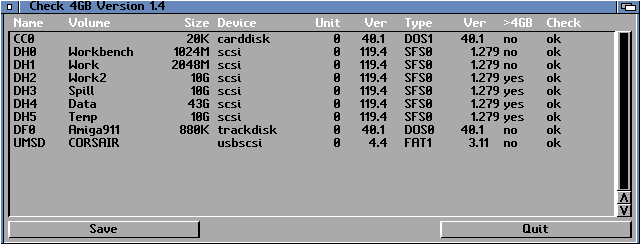Check4gb_1.5.lha
| Description: | Check if your HD setup is 4GB-ready. | |
| Developer: | Thomas Rapp | |
| Homepage: | http://thomas-rapp.homepage.t-online.de/ | |
| Readme: | Short: Check if your HD setup is 4GB-ready | |
| Screenshot(s): |  | |
| Upload Date: | Aug 20 2017 | |
| Category: | Devices/HD | |
| Download: |  Check4gb_1.5.lha Check4gb_1.5.lha | |
| Size: | 19 KB | |
| Downloads: | 783 | |
| Comment(s): |

 Submit files
Submit files